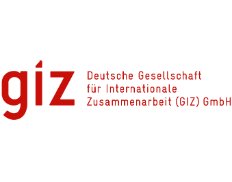Print

National Solidarity Program (NSP)
Details
Locations:Afghanistan
Start Date:2006
End Date:2007
Sectors: Energy, Training
Categories:Consulting services
Funding Agencies:
Date posted:Jan 2, 2017
Description
The National Solidarity Program (NSP) was established by the Government of Afghanistan to develop the capacity of Afghan communities to identify, plan, manage and monitor their own development projects. NSP promotes a new development paradigm whereby communities are empowered to make decisions and control resources during all stages of the project cycle. In accordance with government policy the program is expected to lay the foundations for a long-term strengthening of local governance, making it more inclusive for women, internally displaced persons, returnees, ethnic minorities etc. In addition, NSP is to provide assistance for the reconstruction and development of communities.
The Ministry of Rural Rehabilitation and Development (MRRD) manages and supervises the NSP through an Oversight Consultant (OC), who works with MRRD counterparts to strengthen the capacity for community development and program management. After August 2006, the NSP was taken over by a national management appointed by MRRD. GTZ took over selected outsourced functions such as financial management), and provided technical assistance in other areas. The Technical Support Department was then headed by an international expert.
In this context, Entec experts provided the following services:
- Develop standard training modules addressing main elements of MHP project development and implementation mentioned below.
- Provide and facilitate technical backstopping and training of local turbine and Micro-Hydropower (MHP) equipment manufacturers in close cooperation with other development organizations and NGOs engaged in this sector.
- Develop standard training modules addressing main elements of MHP project development and implementation mentioned below.
- Provide and facilitate technical backstopping and training of local turbine and Micro-Hydropower (MHP) equipment manufacturers in close cooperation with other development organizations and NGOs engaged in this sector.
- Carry out periodic monitoring of MHP project implementation in respective provinces.
- Develop an appropriate mechanism to channel MHP site data relevant to other potential programs active in the MHP sector but exceed the size limitation of NSP (then 25 kW).
- Establish links and foster cooperation with the Ministry of Energy & Water Resources, exploiting the potential for synergies with other programs where appropriate.
- Provide policy advice to the MRRD Renewable Energy Department charged with coordinating small community-based renewable energy projects falling outside the jurisdiction of the Ministry of Energy & Water Resources.
- Develop and disseminate suitable media illustrating best practices relevant to the sustainable implementation of MHP projects to all project stakeholders. This encompassed technical and institutional aspects of MHP development.
- Revise all relevant technical literature and formats applied in the preparation, implementation and monitoring of all MHP projects implemented within NSP.

